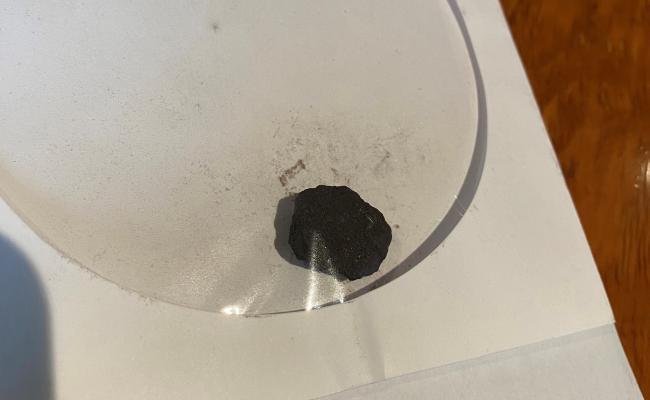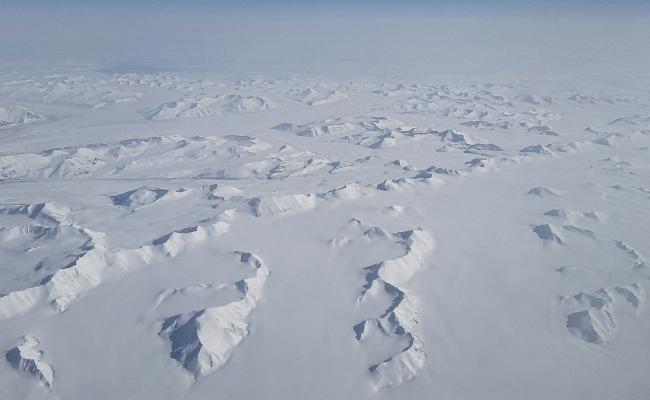Arctic Circle Assembly 2024: Wants International Ecocide Law to Deter and Stop Environmental Crimes in the Arctic
Pertti Salolainen, Former Deputy Prime Minister of Finland and Founder of WWF Finland, and Jojo Mehta, Co-Founder & CEO of Stop Ecocide International, at the Arctic Circle Assembly 2024. They discussed the power and importance of an ecocide law. (Photo: Birgitte Martinussen)
Reykjavik, Iceland (High North News): Politicians, legal practitioners, and researchers are currently working to establish an international ecocide law to prevent environmental crimes in the Arctic and globally. "We see ourselves as separate from nature," says Jojo Mehta, Co-Founder and CEO of Stop Ecocide International.
In an Arctic Circle Assembly session titled 'The power of ecocide law,' Jojo Mehta and Pertti Salolainen discussed the possibility of an international ecocide law.
Pertti Salolainen is the Former Deputy Prime Minister of Finland and the Founder of WWF Finland, and Jojo Mehta is the co-founder and CEO of Stop Ecocide International.

Jojo Mehta, the co-founder and CEO of Stop Ecocide International. (Photo: Ruth Davey)
Both argued that there is a crucial need for an international ecocide law in order to save the planet from climate change and environmental harm.
Mehta highlights that the various bodies of law that already exist have been failing to prevent mass damage and destruction. She argues that there is a cultural reason for this:
"Our Western way of thinking, particularly our economic approach, is one where we are seen as separate from nature. Nature is seen as an infinite source of resources for humans to exploit, even though we intellectually understand that this is not possible on a finite planet. At a cultural level, it is very hard to change those habits that have become so ingrained in the way we conduct our economic activities."
We see humans as separate from nature.
An international ecocide law would make it possible to prosecute those who cause severe damage to the environment. It would place environmental crime alongside international crime, but this would require a change of perspective, believes Mehta.
"Existing international law is very much focused on damage to people and damage to property. A shift is required to acknowledge that damage to the environment itself is just as bad, just as wrong, and just as dangerous as the atrocity crimes we already recognize," she says.
International law: the body of legal rules, norms, and standards that apply between sovereign states and other entities that are legally recognized as international actors.
Legal definition
In 2021, a legal definition of ecocide was outlined by an Independent Expert Panel for the Legal Definition of Ecocide:
“Ecocide” means unlawful or wanton acts committed with knowledge that there is a substantial likelihood of severe and either widespread or long-term damage to the environment being caused by those acts.
Mehta said then that "the definition is well pitched between what needs to be done concretely to protect ecosystems and what will be acceptable to states. It's concise, it’s based on strong legal precedents and it will mesh well with existing laws. Governments will take it seriously, and it offers a workable legal tool corresponding to a real and pressing need in the world.”
Based on consequences
The significance of the definition lies in its focus on consequences.
While environmental regulations today are often very specific in their prescriptions, tempting companies to 'game the system,' the definition of ecocide focuses on the result of a company's actions.
It does not matter what you did or how you did it. The issue is how much harm it creates.
"The definition provokes a new type of question, such as 'What are we doing, and is it likely to create that level of harm?' That is a completely different attitude and one that is sorely missing," says Mehta.
Moral stigma
Mehta highlights that there is no particular moral stigma attached to breaching environmental regulations today.
Companies may begin to weigh compensation costs against profit and find it worthwhile, for example.
Breaching an international law, however, carries a stronger moral stigma and punishment.
"Criminal law has a very particular use in this context because it is the one systemic element of our global structures that directly accesses that moral sense of right and wrong, acceptable and unacceptable," says Mehta.
If ecocide were to be made an international law, it would place severe crimes against the environment alongside serious crimes against humanity, such as genocide and war crimes.
Ecocide law and nature conservation have nothing to do with political parties or political ideologies.
A non-partisan issue
Salolainen emphasizes that this is no particular "leftist" movement, as some have questioned.
"Ecocide law and nature conservation have nothing to do with political parties or political ideologies. It is important for everyone on this globe," he said.
"We have tried to keep the ecocide law conversation outside of the electoral manifestos and party politics precisely for this reason," agreed Mehta.
"This is something we are all facing, regardless of our political persuasions or sectors we work in."
Arctic amplification
As environmental destruction harms the most vulnerable people and communities inordinately, cooperation is crucial.
In the Arctic, one of the most significant effects of human-induced climate change is Arctic amplification. It entails that any change in the net radiation balance tends to produce a bigger change in temperature near the poles than in the planetary average.
A similar effect can be seen in Fiji, Samoa, and Vanuatu, for example, which are facing eradication at a much faster pace than the rest of the globe if climate change and environmental destruction are not stopped.
Just last month, the three Pacific island states proposed an ecocide law in the International Criminal Court (ICC).
The matter will now have to be discussed by the ICC, to which 124 states are parties. Yet, its scope is limited as some of the world's biggest emitters of greenhouse gases are not parties to it, including the US, China, India, and Russia.



